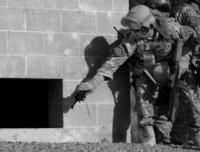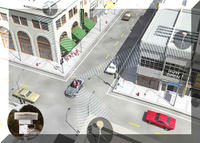-
DHS developing "pre-crime" surveillance tech

Researchers at DHS are working to develop technology that could catch individuals before they commit a crime
-
-
U.S.: Iranian agents tried to kill Saudi ambassador to U.S.

The U.S. attorney general Eric Holde rannounced yesterday that the U.S. government has foiled an Iranian plot to assassinate the Saudi ambassador to the United States; Iran wired $100,000 into a U.S. bank account in August as a down payment for the hit; the assassins — the Iranians thought they were members of a Mexican drug cartel — were to receive $1.5 million if the hit was successful
-
-
German police uses backdoor Trojan to monitor Skype calls
A backdoor Trojan capable of monitoring online activity and recording Skype calls has been detected — and is allegedly being used by the German police force
-
-
TraceSpan Communications shows new interception device
DOCSIS Phantom intercepts target communications directly from the line and collects a hundred percent of the information in both directions, to and from the ISP or communications provider; the device allows interception of all data, including peer-to-peer communication, even when it does not pass through the ISP server
-
-
Calif. Allows warrantless searches of cell phones

California Governor Jerry Brown has vetoed a bill which aimed to prohibit California police from conducting warrantless searches of the cell phones of people under arrest
-
-
Former colleagues: accused anthrax killer could not have done it
Two former colleagues of Bruce Ivins, a scientist who worked at the U.S. Army Medical Research Institute of Infectious Disease (USAMRIID) in Frederick, Maryland, and who was accused by the FBI of being behind the 2001 anthrax attacks in the United States, said he could not have done it (Ivins committed suicide in July 2008)
-
-
Innometrik, Lumidigm integrate technologies
Lumidigm says that Innometriks’ Rhino reader, which combines embedded Lumidigm fingerprint biometrics, smart cards, PKI, and digital signature technologies, is now handling high security applications in extreme weather and rough environments for several organizations of the U.S. Department of Defense
-
-
U.S. army orders 315 reconnaissance micro-robots

Recon Scout XT weighs 1.2lbs (540g), can be deployed in five seconds, and thrown up to 120 feet (36m); soldiers and law enforcement use the Recon Scout system to determine the layout of the enclosed spaces, identify potential IEDs, and the fix the location of friendly, indigenous, or enemy personnel
-
-
Mexico now dominated by two powerful cartels

Five years and more than 35,000 deaths into Mexico’s bloody drug war, two cartels have emerged as the dominant force in narcotics and the two are poised to slug it out in a dangerous battle for control; the Mexican governmen’s crackdown on the drug cartels has left many gangs splintered and operationally less effective without their leaders; in the ensuing power vacuum, the Zetas and Joaquin “El Chapo” Guzman’s Sinaloa cartel have stepped up as the two leading gangs
-
-
ShotSpotter, Intrado join acoustic surveillance, 9-1-1 service

ShotSpotter, Inc. and Intrado Inc. today announced the expansion of their partnership in delivering real-time acoustic surveillance and gunfire location alert and analysis services to public safety agencies. Intrado, a provider of 9-1-1 technology solutions, will host the ShotSpotter solution using its secure Intrado Co-location and Transport cloud service (I-CAT). ShotSpotter offers gunfire alert and analysis technology as a subscription-based service.
-
-
Sector Report for Tuesday, 4 October 2011: Law Enforcement Technology
This report contains the following stories.
Plus 1 additional story.
-
-
Graduate student develops emergency communication Twitter app
A graduate student at the University of Colorado has developed a smartphone app that makes it easier for first responders and emergency personnel to communicate via Twitter during disasters; without a standardized syntax, emergency personnel, affected individuals, information officers, and journalists were having trouble communicating on Twitter
-
-
Alabama explores shirt-cameras for police
With the increasing availability of cheap wearable cameras, more and more police officers could be recording their every move
-
-
Colorado slashes auto-theft rate with fusion center
In 2005 Colorado had one of the highest rates of vehicle theft in the country, but thanks to the dogged efforts of local law enforcement officials and the Auto Theft Intelligence Coordination Center the state is now below the national average
-
-
Free database helps crack cold case from 1984
A cold case investigation into the whereabouts of a man who went missing in 1984 was recently solved with the help of a free online law enforcement database
-
More headlines
The long view
Why Ukraine’s AI Drones Aren’t a Breakthrough Yet
Machine vision, a form of AI, allows drones to identify and strike targets autonomously. The drones can’t be jammed, and they don’t need continuous monitoring by operators. Despite early hopes, the technology has not yet become a game-changing feature of Ukraine’s battlefield drones. But its time will come.
